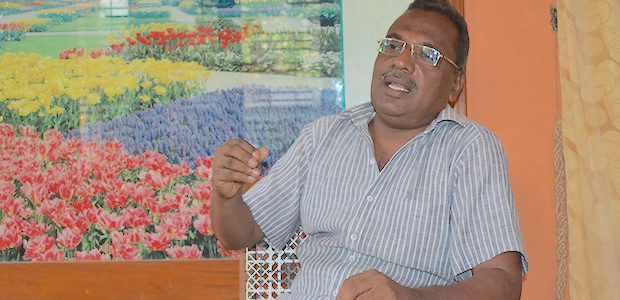Within a Multi-Religious Country
The same law for everyone is not always practical
In conversation with Legal Consultant Dr. A.L.A. Gaffoor, LL.D on Muslim Law in Sri Lanka
Attempts are being made to reform Muslims Personal Law in Sri Lanka but not without criticism from some sections of the community. At the same time, voices are raised for uniformity of the law in the country and that a General Law should be applicable to all. The Catamaran interviewed Legal Consultant Dr. A.L.A. Gaffoor, LL.D in this regard.
THE CATAMARAN: Do you believe that the law must be the same for everyone?
Answer: All civilians in Sri Lanka are governed by common law for criminal and civil matters. But, in some respects, the application of equal law for everyone is not possible in a pluralist framework. The marriages of Jaffna Tamils, Kandy Sinhalese and Muslims have different religious and cultural features. So, the ‘Thesavalamai’ Law for the Tamils of Jaffna, the Kandyan Law for the Sinhalese of Kandy and the Muslim Marriage and Divorce Act (MMDA) for the Muslims exist. There is nothing wrong with that.
THE CATAMARAN: What are the matters specifically covered by the MMDA?
Answer: The law governing Muslims is Sharia law. The origins of this law are the Quran and Hadith. But in non-Muslim countries such as Sri Lanka and India, Muslim law is different and the Sharia law is different. What we find here is not pure Sharia Law; it’s a mixture of tradition and some aspects of the Sharia. The Muslim law applied here are marriage pertain to divorce, child care, donation of property, inheritance and governance of donated property for religious institutions (Waqf).
THE CATAMARAN: There is a proposal to make changes to the Muslim law. What’s your opinion on this?
Answer: Muslim law has been revised from time to time. These changes must be made by Muslims who are not in contradiction with other laws. There is nothing wrong with that. For example, in the case of divorce, Islam prescribes that the ‘divorced wife must be given generously because she has lived with you’. But in the MMDA there is no such thing. There are many things in the Islamic religion which are not found in MMDA. That is what Judge Sarwananda had emphasized during a case. Such matters can be brought into law either through a court decision or through a parliament. The compensation paid to a divorced woman (Matha) in Islam can be applied similar to the law applied to other communities. The Quazi-judge can do it without contravening the law.
THE CATAMARAN: There is some dissatisfaction among Muslims, especially Muslim women, with regard to the Quazi Court of Sri Lankan Muslims. They have also suggested some revisions. What do have to say about it?
Answer: A proper change in the Quazi system must be brought about. The Quazi courts must first be properly administered and supervised. Quazi must be like a judge. Suitable people must be appointed. For example, if a woman sues for child care after a divorce most Quazis are not clear on how to determine the alimony. Alimony requires that a child’s basic needs be satisfied. That has been detailed in the Alimony Ordinance in our general law which Quazis are probably unaware of. When a case is taken to the Quazi, it is inquired into and a ruling given. If the appellant is not satisfied with ruling the appeal goes to the Board of Quazis and there it takes about five years. During these periods the child gets no alimony. Very few of these cases are taken to a magistrate court. Therefore, I recommend Muslims to take such cases to a Magistrate.
THE CATAMARAN: There are issues in returning the dowry that is paid at the marriage, after the divorce.
Answer: The issue of Kaikuli (Dowry) is registered during the marriage. The quazi orders it to be paid back to the woman at the time of separation. First of all, who brought this into system of Islam? It is against the teachings of Islam. Something that is contrary to Islam need to be changed.
THE CATAMARAN: What is the barrier to appointing women as quazi-judges?
Answer: In our legal system there are male and female judges. In Islam, the fatwa (judgment) says that the best moral and sensible man should be judge. But certainly women can assist in the delivery of judgment. At the same time, female judges have been appointed in Pakistan, Malaysia and other countries. There are no Islamic laws in these countries. The laws in Sri Lanka are similar. So we can pay attention to that.
THE CATAMARAN: Can you clarify what is found in Muslim law regarding polygamy?
Answer: The Qur’an clearly states that a man may marry more than one wife provided he could treat them equally and righteously. Also such a person should be physically fit and economically sound. There are procedures in the MMDA for a second marriage. In countries like Pakistan, Turkey and in African countries, there is a Family Council to evaluate whether a person is capable of maintaining more than one family. Permission is granted only when conditions are fulfilled. We too can incorporate such amendments to system.
THE CATAMARAN: Is there any place in Muslim law with regard to crime?
Answer: All matters relating to crime are dealt with under the general criminal law. For example, if Muslims commit adultery, it is a severe crime in Islam. But that Islamic law cannot be implemented in Sri Lanka. It will be dealt with entirely on the criminal law of the country. We can’t interfere in that. No traditional law can deal criminal offences.
Dr. A.L.A. Gaffoor, LL.D, Attorney-at-law, is former Trincomalee District Judge, Lecturer of the University of Colombo Law Faculty










